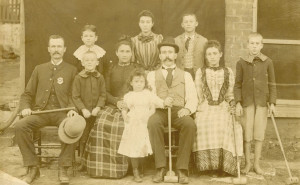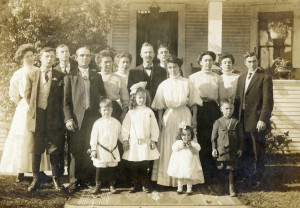Years ago at the age of eighteen, my husband graduated from high school. With no particular skills, he found work picking apples in the orchards of his home state of Washington. Then an aluminum plant opened in the area, and he applied and was hired. This new job allowed him to advance from entry level to levels far beyond the subsistence jobs his family had known.
Then he was drafted into the army. After his basic training, he was able to apply for officer candidate school. He was accepted and emerged from the additional training as an officer in the U.S. army, a professional, the first in his family. Eventually, he applied for more training and became a pilot, finding a career that challenged him and allowed him meaningful service. Along the way, he received a college degree, paid for by the military.
I use these examples, not to push for factory or military careers but as examples of how opportunity can inspire even disadvantaged young people to become useful citizens. The military and to a certain extent the factories of my husband’s day took uneducated youth and offered them training and the hope of advancement. The opportunity to enter a couple of careers where advancement and a living wage were a possibility changed my husband’s life.
Our careers today seem divided into well paying, professional jobs, open only to those few who can first afford an expensive education, and all the rest. Perhaps we need more apprentice type jobs, even in the technical field. Jobs with the promise of training and education, more responsibility, and the chance to advance professionally can fuel hope.


 Seattle is a hip city, known for the nation’s highest minimum wage, recycling, and the number of young educated elites moving in. Odd that recent census data shows Seattle with the highest percentage of children in married-couple households in the fifty largest cities in the U.S. (Seattle Times, December 28, 2014)
Seattle is a hip city, known for the nation’s highest minimum wage, recycling, and the number of young educated elites moving in. Odd that recent census data shows Seattle with the highest percentage of children in married-couple households in the fifty largest cities in the U.S. (Seattle Times, December 28, 2014) An ancient photograph inherited from my mother shows her mother’s family gathered for a family photo on their farm in Tennessee. One child is barefoot. Grim faces stare at the viewer.
An ancient photograph inherited from my mother shows her mother’s family gathered for a family photo on their farm in Tennessee. One child is barefoot. Grim faces stare at the viewer. Also passed down is another photo portraying most of the same family members grown older, with spouses and children. They are now nicely dressed like any middle-class family of the time would be. All, including the children, wear shoes. Their greater prosperity is apparent.
Also passed down is another photo portraying most of the same family members grown older, with spouses and children. They are now nicely dressed like any middle-class family of the time would be. All, including the children, wear shoes. Their greater prosperity is apparent. Two economists in the United States (Emmanuel Saez and Edward Wolff) have delved into wealth accumulation, using historical figures. In the 1920’s, the bottom 90 percent of Americans only held 16 percent of the country’s wealth. By the 1980’s however, the middle class made impressive gains. Their percentage rose to about 36 percent of the country’s wealth.
Two economists in the United States (Emmanuel Saez and Edward Wolff) have delved into wealth accumulation, using historical figures. In the 1920’s, the bottom 90 percent of Americans only held 16 percent of the country’s wealth. By the 1980’s however, the middle class made impressive gains. Their percentage rose to about 36 percent of the country’s wealth.